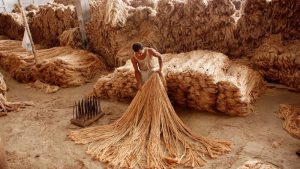We are pleased to share with you a brief report by GRAIN on the potential impacts of the Regional Comprehensive Economic Partnership (RCEP) on the lives and livelihoods of Asia’s indigenous peoples and farmers as well as food safety and security in the region.
While less well known than the 12-nation Trans-Pacific Partnership Agreement (TPPA) signed on 4 February this year that covers the region’s 800 million people, the RCEP will in fact affect a larger group since it binds the 10-member ASEAN and six non-ASEAN countries – including China – with a combined population of over 3.5 billion.
And while some consider RCEP to be friendlier to low and middle-income countries, negotiations for the RCEP – like the TPPA – have also taken place behind closed doors, without the participation of farmers, unions, indigenous peoples, health advocates, and other members of civil society.
As the GRAIN report shows, texts leaked from the RCEP negotiations indicate a strong push to increase the power of corporate seed companies and to criminalise seed saving and exchange.
More specifically, the RCEP:
– will very likely result in restrictions on seed saving and exchange at a time when, under the extreme pressures of climate change, farmers need more diversity in their fields, not less;
– could increase farmers’ dependence on external inputs and raise their costs of production, as well as result in increased seed prices; and
– if seeds or traditional knowledge are compiled into databases and made available, companies like Monsanto and Syngenta could appropriate the knowledge and genetic resources of farming and indigenous communities.
The full report can be read and downloaded here: www.grain.org/e/5405 – Third World Network




